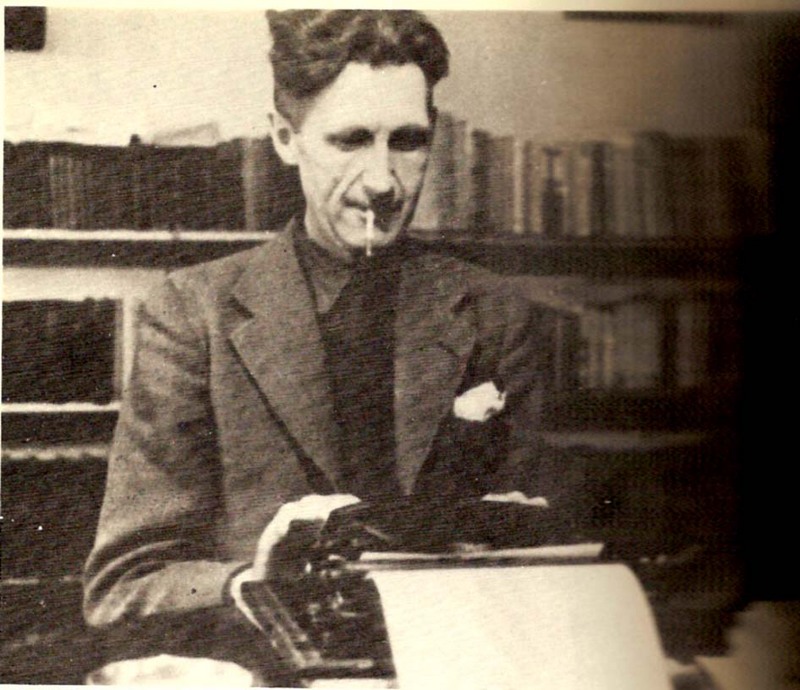 We have totally had enough of Amazon.com at Candlelight Stories and have completely removed them from advertising space on this site and permanently severed our ‘associate’ relationship with the company. The reason is simple. Over the weekend, Amazon went into customers’ Kindle ebook devices and deleted purchased copies of George Orwell’s classic novels, Nineteen Eighty-Four and Animal Farm. Apparently, the U.S. owner of the novels’ copyrights either decided to change its mind about offering an ebook of the novels or complained about illegal electronic copies on Amazon. So Amazon removed them from the site and then reached out into Kindle devices that are legally owned and whose owners had legally purchased Nineteen Eighty-Four and Animal Farm from Amazon’s own site and completely removed all traces of the novels from those devises. I call it an eBurn.
We have totally had enough of Amazon.com at Candlelight Stories and have completely removed them from advertising space on this site and permanently severed our ‘associate’ relationship with the company. The reason is simple. Over the weekend, Amazon went into customers’ Kindle ebook devices and deleted purchased copies of George Orwell’s classic novels, Nineteen Eighty-Four and Animal Farm. Apparently, the U.S. owner of the novels’ copyrights either decided to change its mind about offering an ebook of the novels or complained about illegal electronic copies on Amazon. So Amazon removed them from the site and then reached out into Kindle devices that are legally owned and whose owners had legally purchased Nineteen Eighty-Four and Animal Farm from Amazon’s own site and completely removed all traces of the novels from those devises. I call it an eBurn.
What this means is that when you buy a Kindle ebook device you don’t actually own the device or anything on it. Amazon does. They can simply reach into your device and destroy any file they want to at any time, without your knowledge or permission. I call that vandalism. I think any company behaving that way should face a class action lawsuit and be investigated for violations of law. I will not allow Candlelight Stories to engage in any further business with such a company and cannot recommend that anyone purchase a Kindle or any electronic file from Amazon.com whatsoever. What Amazon did was basically like this: imagine you go to buy a book for $14.95 at a Barnes & Nobel store. Then Barnes & Nobel decides for whatever reason that they actually didn’t really want to sell you that book. So they send an employee into your home while you’re out to remove the book from your bookshelf and leave $14.95 under your pillow. That’s exactly what Amazon thinks it can do to you. Appalling. George Orwell must at this moment be laughing in his grave. And the joke’s on Amazon.
Amazon has gotten into the habit recently of engaging in digital censorship and then apologizing once they get wind of a public outcry. They then try to spin their bad behavior as a technical glitch that won’t happen again. They have replied to this latest debacle by saying that it happens ‘rarely’ and that it will not happen again. We do not believe them. What this episode proves beyond any shadow of doubt is that the company can press a button and blow away any book you may have purchased. Refunding the purchases simply does not make up for this grotesque behavior. So, when you buy a Kindle, you really don’t own anything. You are simply renting a little portable Amazon cash register that Amazon retains full rights to. Companies like Amazon are building distribution systems that make censorship as easy as the press of a button. How far are we willing to go in allowing just a few companies to control the distribution of most of our literature and reference material. If that handful of companies decides it doesn’t like the politics of a certain kind of literature, it can blow it away completely by pressing a button or entering a simple code. Book burnings have never been able to eradicate ideas so efficiently. We now have something new: the eBurn. No company that cared in the slightest for literature or for books would ever behave this way for any reason. I am disgusted and horrified by Amazon. I actually bought a television through Amazon. Now I’m wondering if they can get inside it and delete my favorite TV shows. My digital camera. Can they blow away my vacation photos?
We have an excellent open-source web browser called Firefox, we now desperately need an open-source ebook device that allows us to purchase from any bookseller in any format available. Hey, Mozilla, are you listening?
Oh, and by the way, here’s a technology writer to stay away from. He actually says he thinks it’s a good idea for Amazon to sneak into Kindles and destroy books: Read his dimwitted comments on nothing other than C-Net.com.
 New Statesman has a very interesting
New Statesman has a very interesting